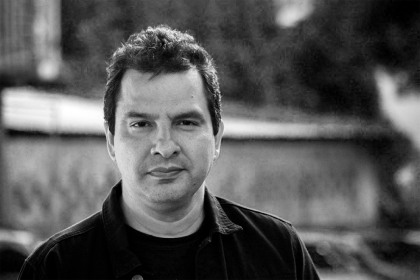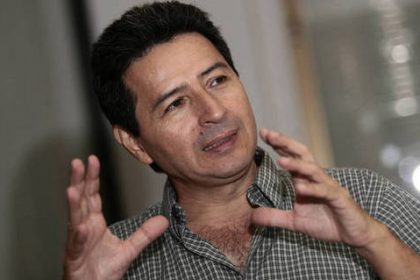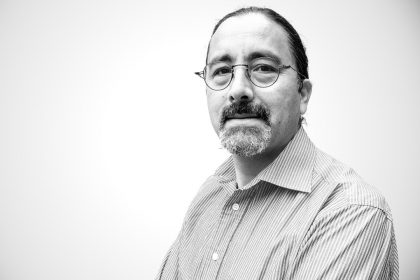ABOUT THE AUTHOR:

Calixto Ävila
Specialist Lawyer in Human Rights and Master in Public International Law. Provea representative in Europe.
A crisis is an exceptional moment when we wonder if we are ever going to return to normality and what will happen when we return to it. What kind of normality is going to emerge from the crisis? What if this crisis lasts forever? These are some of the questions from philosopher Etienne Balibar when asked about the role of philosophy in times of pandemic. The dissertation focuses more on the European normality, and compares the current situation to a set of Russian dolls: the first doll is the health crisis created by the pandemic. Within it is a dormant, developing economic and social crisis, and within it, in turn, a third doll representing a very deep spiritual crisis of values. In particular, says the philosopher, the pandemic reveals social exclusions since it does not strike everyone in the same way, and an unbearable and unlivable process of social annihilation.
Extrapolating this reflection to the Venezuelan situation cannot but originate great anguish. First of all, because our crisis is not an exceptional moment but a permanent situation turned into something even greater: a complex humanitarian emergency. And second, because the order of the Russian dolls is different: the health crisis was not created by the pandemic, it already existed and was of profound dimensions; the economic and social crisis is not waiting for the end of the pandemic but has been a reality in the life of Venezuelan people for years; And, the spiritual crisis of values has been endured for a long time by resilient Venezuelans and their enormous expressions of human solidarity.
The very notion of “getting back to normal” is so dramatically different for the Venezuelan people who do not dream of getting back to life as it was before January or February of this year. The pandemic has not revealed the social exclusion either: it was already evident and massive in Venezuela, as witnessed by the millions of forced migrants and the millions of Venezuelans in need of humanitarian aid. Venezuelan normality was not and is not normal, but an inhumane situation of precariousness and vulnerability that affects the majority of the population.
Even assuming the best-case scenario, thanks to the providence or an unlikely good management of the health crisis aggravated by COVID-19, the Venezuelan situation could be even worse than what we have known so far. This is clear from the recent Global Report on Food Crises 2020 by the World Food Program (WFP) and 15 other humanitarian and development organizations. Venezuela, the country with the largest oil reserves in the world and which received the equivalent of ten Marshall plans for imports between 1999 and 2015, faced the fourth-worst food crisis in the world in 2019. The list is made up of Yemen, the Democratic Republic of the Congo, Afghanistan, Venezuela, Ethiopia, South Sudan, Syria, Sudan, Nigeria, and Haiti.
In the list, Venezuela is only preceded by Yemen, a country immersed in armed conflict between the Houthi forces and the central government supported by Saudi Arabia and the United Arab Emirates, with serious violations of humanitarian law, particularly against women and girls; The Democratic Republic of the Congo, where armed conflict between the government and nearly 40 local and foreign armed groups has worsened despite the presence of a UN stabilization mission; And Afghanistan, devastated by years of wars between the Taliban, the Islamic State, and pro-government forces. Without an armed conflict or a natural catastrophe, Venezuela comes in fourth place, far from Haiti, which occupies the tenth place and whose inhabitants migrated to Venezuela in past decades, fleeing from hunger and hardships in their country.
It is important to note that the situations in the Democratic Republic of the Congo and Afghanistan are under investigation by the International Criminal Court (ICC), while Venezuela is under preliminary examination at the ICC Prosecutor’s Office. The crimes committed in Yemen cannot be brought before the ICC since it has not ratified the Rome Statute. In these four countries, serious war crimes or crimes against humanity have undoubtedly contributed to making their populations more vulnerable to the famines predicted by specialized international organizations. For World Food Program economist Arif Husain, “COVID-19 (sic) is potentially catastrophic for millions of people whose lives are already hanging by a thread. It is a blow to millions more who live hand to mouth. The lockdowns and the global economic recession have decimated their savings. It only takes one extra shock, like (sic) COVID-19, to push them to the limit. We must act collectively now to mitigate the impact of this global catastrophe. ” As a result of the pandemic, the WFP expects the number of people in acute food insecurity (Phase 3 or worse under the Integrated Food Phases Classification scale) to increase to 265 million in 2020, an additional 130 million from 2019. As Yngrid Candela, a researcher at Provea, states, “the scenario in Venezuela is more precarious in comparison to other countries, considering that the emergency of COVID-19 overlaps with the complex emergency that collapsed of all sectors and left the country dependent on external humanitarian assistance. Given COVID-19, the possibility of accessing these resources will be limited by the increase in world demand and the obstacles to financial and operational management ”.
Acting collectively is an urgent need inside and outside Venezuela, not only for international humanitarian and development agencies but for society and for those who hold social leadership or political power in the country. Nor can we forget the call of the High Commissioner for Human Rights for international sectoral sanctions to be lessened or suspended. It is evident that, amid the calls to join efforts to overcome the pandemic, there is an urgent need to prevent the famine in Venezuela from doubling in the coming months. We are far from reaching humane normality in Venezuela, and the worsening food crisis will further distance us from that possibility, dangerously deepening an “unbearable and unlivable process of social annihilation”, as referred to by philosopher Etienne Balibar.
ABOUT THE AUTHOR:

Calixto Ävila
Specialist Lawyer in Human Rights and Master in Public International Law. Provea representative in Europe.




